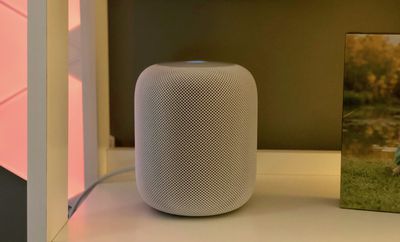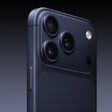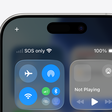A questionable new report from Apple's supply chain claims that the company's rumored "low-priced" version of the HomePod will be placed under the Beats by Dre brand instead of the expected Apple branding. The report comes from Chinese news site Sina, which also says the $199 speaker will have MediaTek as the supplier, a change from Apple's decision to give Inventec sole supplier duties on the first HomePod (via LoveiOS).
Reports about a cheaper HomePod began appearing quickly after news of lackluster sales for the first version of the speaker emerged earlier this year, with former KGI Securities analyst Ming-Chi Kuo and other industry watchers predicting a low-cost speaker priced between $150 and $200. What's new in this week's report is the idea of a Beats-branded version of the HomePod, but it's unclear exactly what form the speaker would take, what features it would carry over from the $350 version of the speaker, and where Sina is sourcing the news from in the first place.

It seems unlikely that Apple would somehow combine the HomePod and Beats brands into one product, and due to all of this it's important to take the new report with a dose of skepticism. Beats last updated its Pill line of speakers with the Pill+ in 2015, which ran for $230 at launch but nowadays is priced closer to $130 when purchased on sale. Pill devices lack persistent "Hey Siri" functionality, likely due to their lack of constant AC power, so it also seems unlikely that Apple would extend that feature beyond its own line of devices, currently including the iPhone, iPad, HomePod, and Apple Watch.
In his prediction, Ming-Chi Kuo said that Apple is "mulling" a "low-cost version" of the HomePod in an effort to boost short-term shipments. Apple's main selling point on the $350 HomePod is its high-quality audio playback, with reviewers agreeing that the speaker blows other smart speakers out of the water in terms of audio performance, but Siri's performance, the lack of certain languages, and Apple's walled garden ecosystem (particularly excluding any music service besides Apple Music) left many to wonder if the price was actually justified.
As a point of comparison, two of Apple's rivals sell entry-level versions of their smart speakers for as low as $50 in the United States, including Amazon's Echo Dot ($49.99) and Alphabet's Google Home Mini ($49.00). The smaller, cheaper devices allow users to expand features of the connected speaker system into other rooms around their home, without having to spend a lot of money on purchasing the base speakers multiple times.
For now, the HomePod still lacks a few features Apple announced prior to the speaker's launch, namely AirPlay 2 support and multi-room audio, both pegged for release through a firmware update sometime later in 2018. Although there have been many reports about a cheaper HomePod, none have yet hinted at a potential launch window for the rumored lower-cost speaker.




















